How the United States is resettling 10,000 Syrian refugees
As the United States meets its goal of resettling 10,000 Syrian refugees, the International Rescue Committee explains how the resettlement process really works.
As the United States meets its goal of resettling 10,000 Syrian refugees, the International Rescue Committee explains how the resettlement process really works.
The United States has a long tradition of sheltering those fleeing conflict and persecution. However, some elected officials, citing unfounded fears that terrorists may infiltrate the refugee resettlement programme, are calling for a halt to their arrival or cuts to funding for refugee assistance.
It’s important to remember that refugees are fleeing violence and persecution—in Syria, Eritrea, Bhutan and other countries in crisis—and that they are seeking safety and the chance to move their lives forward.
The International Rescue Committee and other resettlement agencies support newly arrived refugees by providing immediate aid, including food and shelter. We also provide services to assist them on their paths to becoming permanent U.S. residents and eventually citizens. Below are the steps the U.S. take to welcome some of the world’s most vulnerable people:
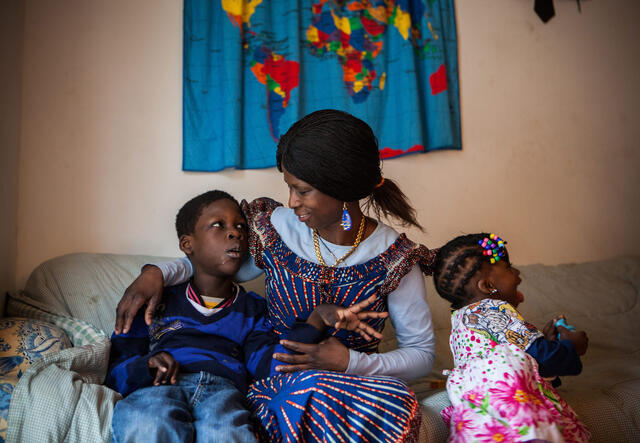
Determine refugee status
A refugee is a person forced to flee his or her home because of war or political upheaval and seek safety in another country. They have well-founded reasons to fear persecution because of their race, religion, nationality, membership in social group or their political opinion. Refugee status is determined by the United Nations.
Referral to the U.S.
Most refugees who enter the U.S. refugee admissions programme are identified and referred for resettlement in the U.S. by the United Nations refugee agency (UNHCR), a U.S. embassy or an approved
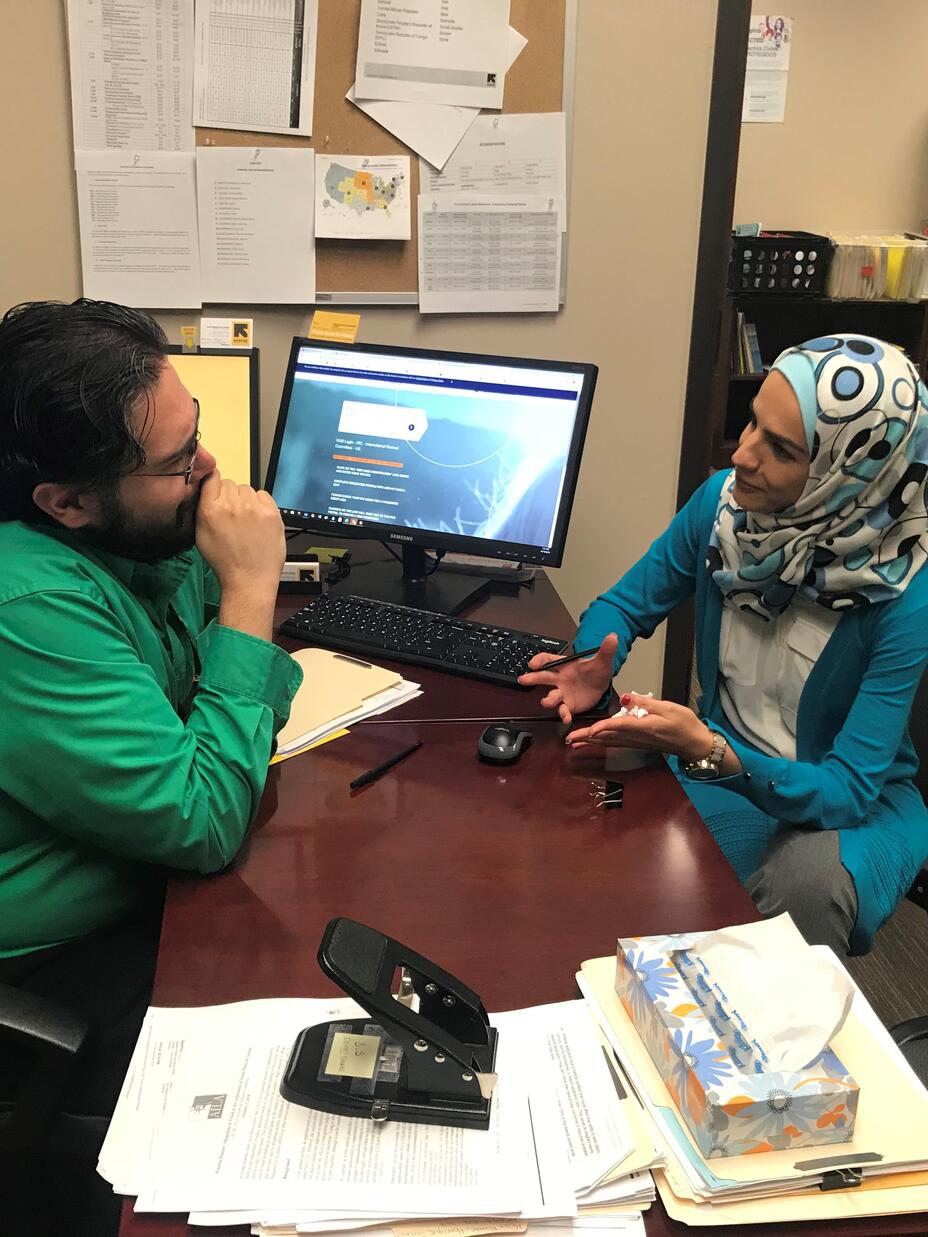
humanitarian aid organisation. The U.S. is just one of 28 resettlement countries. Out of the nearly 20 million refugees in the world, fewer than 1 percent are considered for resettlement worldwide.
The application process
The Resettlement Support Centre (RSC), run by agencies like the IRC (in Thailand and Malaysia), through cooperative agreements with the Bureau of Population, Refugees, and Migration, help refugees and their families prepare their cases to the Department of Homeland Security (DHS), compiling personal data and background information for security clearance.
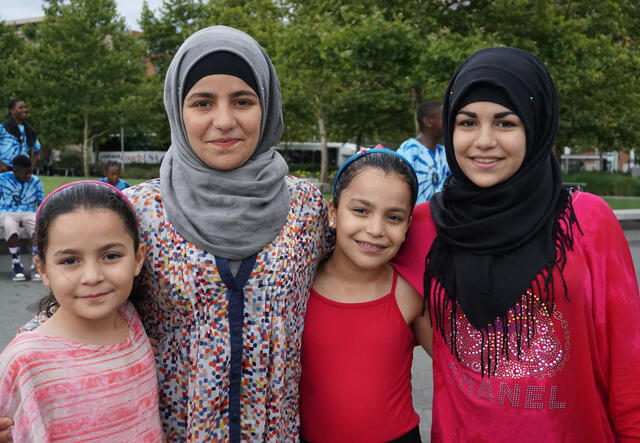
Approval for resettlement
Once refugees have been cleared for resettlement, the U.S. government works with the IRC and eight other national resettlement agencies to help them restart their lives in America. Refugees may be placed in a city where they have relatives or friends, or where there’s an established community that shares their language or culture. Other considerations include the cost of living and a community’s ability to provide medical services. However, as legal U.S. residents, refugees may live in any state they choose.
Preparation for travel
Before refugees leave the countries where they temporarily reside, they sign promissory notes agreeing to reimburse the U.S. government for travel costs. They also attend a class to learn about what to expect when they arrive in their new country, with briefings on American culture, U.S. laws, health benefits and other critical information. Officials also conduct a final screening and additional security checks before departure.
Arrival in the U.S.
Refugees are usually greeted and welcomed at the airport by case workers from resettlement agencies like the IRC to ensure their transition is as comfortable as possible. Agencies are responsible for finding a suitable, affordable home for refugee families, something many of these refugees have gone without for years. Families also receive basic furnishings, food and other immediate assistance.
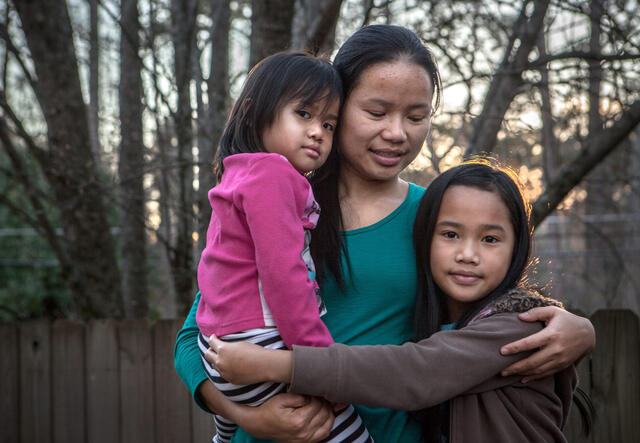
Getting on their feet
For the first 90 days, resettlement agencies work with state and local governments and community organisations to help new arrivals settle into their communities.
Refugees are introduced to their local health care system. Although they have had through check-ups before entering the U.S., they receive additional examinations by medical professionals in their new communities.
Once they acclimate to their new environment, refugees often thrive and contribute to their communities, building their careers, purchasing homes, gaining citizenship.
As the head of one Syrian family resettled in Dallas says:
“I’ve been here for a short time, but even in this short time, you notice that America is a better place than many other countries. There is a real opportunity to start over and grow. America’s still the land of opportunity for many people who started from nothing, and now they are successful. I know I can do something here.”
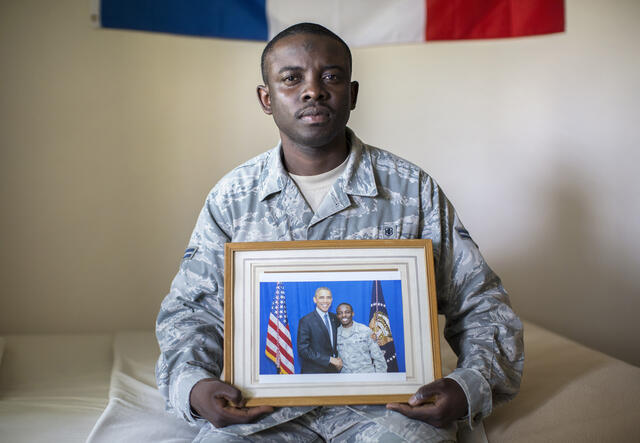
The International Rescue Committee is providing relief to millions of uprooted people inside Syria; in neighbouring Iraq, Lebanon, Turkey and Jordan; in Afghanistan; on the shores of Greece; and in our 29 resettlement offices in the United States. Read a post in our 'Uprooted" publication on Medium that examines four myths that threaten the safety of refugees.